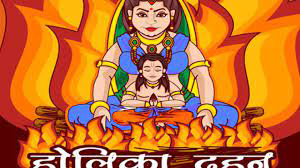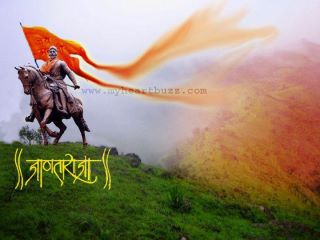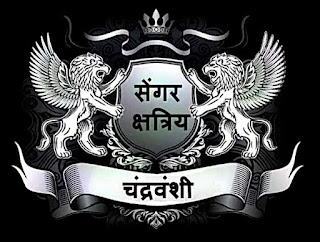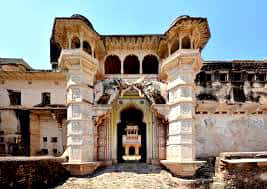कर्त्तव्य पथ ही धर्म पथ है - अरविन्द सिसौदिया Dharma
कर्त्तव्य पथ ही धर्म पथ है - अरविन्द सिसौदिया
The path of duty is the path of Dharma - Arvind Sisodia
धर्म का मतलब मूलतः कर्त्तव्य होता है। साधारण भाषा में समझें तो एक सिपाही का कर्त्तव्य शत्रु का संहार करना,उस हेतु शस्त्र उठाना है। किन्तु यदि वह सिपाही नहीं है तो ...? कोई जबावदेही नहीं है ! शिक्षक का कर्त्तव्य शिष्य को छात्र को शिक्षा प्रदान करना है। यदि वे शिक्षक नहीं हैं तो ...? कोई जबावदेही नहीं है !! ड्राईवर का , कन्डक्टर का अलग अलग काम है, जो काम जिसके लिए निर्धारित है वही उसका धर्म है। धर्म मूल रूप से किसी कार्य को करने की व्यक्तिगत जिम्मेवारी का, जबावदेही का संझिप्त नाम या संकेताक्षर है। जिसे हम अंग्रेजी में लेबिल भी कह सकते हैं।
Dharma basically means duty. If understood in simple language, the duty of a soldier is to kill the enemy and take up arms for that. But if he is not a soldier then...? There is no accountability! The duty of the teacher is to impart education to the student. If they are not teachers...? There is no accountability!! Driver and conductor have different jobs, the work for which they are assigned is their duty. Dharma ( Not Religion ) is basically an acronym or abbreviation for personal responsibility and accountability for doing something. Which we can also call label in English.
अब आप सोचिये कि आपनें मनुष्य के रूपमें जन्म लिया है और आपके सामनें स्वस्फूर्त जो जो काम करनें हैं उनकी सूची क्या है ? जब आप गहराई से सोचना प्रारम्भ करेंगे तो कई तरह के कामों की विशाल सूची स्वतः ही बनती चली जाती है। यह सूची माता पिता के प्रति भई बहन के प्रति , बडे बूढों के प्रति छोटों के प्रति ....समकालीन के प्रति नाते रिस्तदारों के प्रति...मौहल्लेवालों के प्रति ,गांव या शहर के प्रति , स्वयं के रहन सहन के प्रति ....जितना सोचेगों यह दायरा उतना ही बडता चला जायेगा। व्यक्ति से लेकर परमेष्ठी तक.....। इसे जीवन पद्यती भी कहा गया है।
Now think that you have taken birth as a human being and what is the list of things that you have to do spontaneously? When you start thinking deeply, a huge list of many types of tasks automatically starts forming. This list is towards the parents, towards the brothers and sisters, towards the elders, towards the younger ones… towards the contemporaries, towards the relatives… towards the people of the locality, towards the village or city, towards one's own lifestyle.. ..The more you think, the more this scope will keep expanding. From the individual to the Supreme Being... This has also been called life style.
अब हम सोचते हैं कि क्या हमारे कर्त्तव्य व्यक्तिगत सम्बंधों रहन सहन तक ही सीमित हैं तब लगता है नहीं .... हम जिस देश में रहते हैं उसके प्रति भी कर्त्तव्य है। जिस समाज में रहते हैं, जिस संस्कृति में रहते हैं ..उनके प्रति भी हमारा कर्त्तव्य होता है। जिस पृथ्वी पर हैं , जिस सूर्य से प्रकाश पाते हैं, जिस चन्द्रमा की चांदनी हमें शीतल प्रकाश देती है। ...कर्त्तव्य उनके प्रति भी है। जिस तरह हमारी सोचनें समझनें की क्षमता बडती जाती है। उसी के साथ साथ कर्त्तव्यों का दायरा बडता जाता है। यही दायरा हमकों बनानें वाले ईश्वर और हमको चलानें वाले ईश्वर के प्रशासन मण्डल रूपी देवी देवताओं तक भी पहुंच जाता है। कि हमारे उनके प्रति भी कर्त्तव्य हैं। कोई हम पर निरंतर उपकार करता है, सब कुछ देता ही देता है तो भी हमारा कर्त्तव्य बनता है कि हम उन्हे धन्यवाद दें, कृतज्ञयता व्यक्त करें। हम बपने शरीर को संचालित करने वाली आत्मा को जानना चाहते हैं उसके प्रति कर्त्तव्यों को समझना चाहते है। यह धर्म में आता है। आत्मा से लेकर परमात्मा तक को समझनें का प्रयास एवं उनके प्रति हमारी जबावदेही हमारे कर्त्तव्यों को जानना ही धर्म है।
Now we think whether our duties are limited to personal relationships and living habits, then it seems no...we also have duties towards the country in which we live. We also have a duty towards the society in which we live, the culture in which we live. The earth we are on, the sun from which we get light, the moonlight from which gives us cool light. ...Duty is towards them also. Just as our ability to think and understand increases. Along with this, the scope of duties also increases. This same scope also extends to the God who created us and the Gods and Goddesses who form the administrative board of God who runs us. That we have duties towards them too. Even if someone constantly does us a favor and gives us everything, it is our duty to thank him and express our gratitude. We want to know the soul that operates our body and want to understand our responsibilities towards it. This comes in Dharma ( Not religion ). Dharma is the effort to understand everything from the soul to God and knowing our responsibilities towards them and our duties.
कर्त्तव्यों और उनके अनुंसधान एवं व्यवस्थापन का संग्रहीत संग्रह ही धर्म कहलाता है। यह व्यवस्था मात्र भारतीय संस्कृति में ही है।
The collected collection of duties and their research and management is called Dharma. This system exists only in Indian culture.
इसलिए, धर्म को संप्रदाय या मजहब से नहीं मापा जाना चाहिए। धर्म और मजहब दो अलग-अलग अवस्थाएँ हैं। धर्म शब्द रिलीजन शब्द से कहीं ऊंचा है और सत्य पर आधारित है। यह समाज की व्यापक व्यवस्था पर आधारित है तथा सुव्यवस्था पर आधारित है।
Therefore,Dharma should not be measured by sect or religion. Dharma and religion are two different states. The word Dharma is much higher than the word religion and is based on truth. It is based on the comprehensive system of society and is based on good order.









टिप्पणियाँ
एक टिप्पणी भेजें